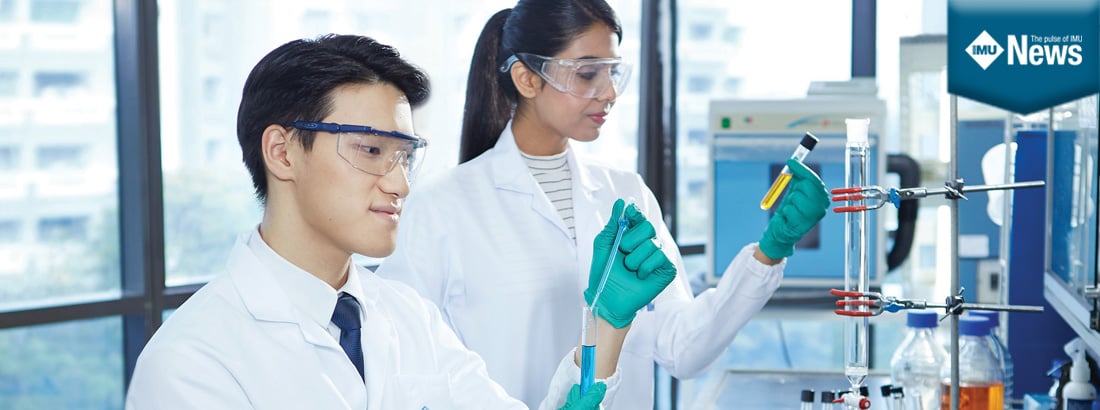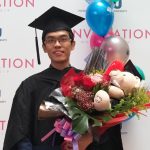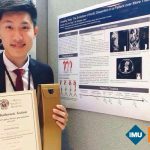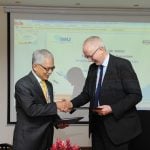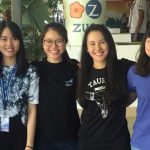Chan E-Lyn started her studies in International Medical University (IMU)’s BSc (Hons) in Pharmaceutical Chemistry programme in 2016. Over the course of her studies at IMU, she has grown to be more confident and learned more than she could have ever imagined. She relates some of her experiences here. “During my final year, I had the opportunity to pursue my internship at the Malaysian Rubber Board (MRB) under the supervision of Dr Lee Siang Yin. I was fortunate enough to have experienced first-hand and learned about natural rubber latex (NRL), its preservation system, characterisation tests on surfactant and film and the general process of how a glove is made. I also had the opportunity to manage and operate instruments such as turbiscan, tensile testing machine, gel permeation chromatography (GPC), nuclear magnetic resonance (NMR) and many more.
| One of the Most Memorable Moments |
|---|
| I had the opportunity to experience something my late grandparents used to do to earn a living – harvesting rubber. Harvesting latex is not just merely tapping the tree, but it involves careful consideration of the age of the tree, the circumference of the bark and the degree of the cut. It was more difficult than I had ever imagined. |
The problem with the current latex preservation system using the conventional method is that the volatile property of ammonia can cause detrimental effects to human body and to the environment. With the hope of substituting the use of ammonia, my role as a research assistant in MRB involved synthesising plant-based polymeric surfactant solutions to improve latex stabilisation and film formation.
Along the way, I encountered some repeated setbacks which made me feel a little discouraged, but I was reminded that failure in science is frequent and inevitable. With this perspective in mind, I tried to develop alternative approaches and learned persistence and perseverance in the face of discouragement.
After much patience and optimism, the surfactant solutions were successfully synthesised. Not only are these plant-based surfactant solutions non-toxic but characterisation tests of the film have also shown significant improvement in terms of its mechanical properties where they are more flexible and more resistant to breaking under tension as compared to the commercial surfactant. Subsequently, Dr Lee invited me to present my findings at the International Congress of Pure & Applied Chemistry (ICPAC) Yangon 2019. It was an honour to present my study alongside researchers from top-notch universities around the world like Osaka University, China University of Petroleum, Moscow State University just to name a few. Besides poster presentations, there were also thematic sessions where professors and researchers shared their work. I feel encouraged and motivated by the researchers and their works which have brought many positive impacts to the society and the environment. I made use of the platform and opportunity given to ask questions that I did not understand, and the presenters were more than happy to share. With that said, all these would not have been possible without the support from the lecturers, staff and my mentor form IMU. The Pharmaceutical Chemistry programme has definitely equipped me with the fundamental understanding of scientific theories and analytical skills. Besides, it has also trained me in proper research planning and laboratory management. Upon completion of my industrial training, I have met individuals from different backgrounds and have gained valuable experiences that I believe will prepare me in my future career. I also realised that failure is an essential part of a research and development process, instead of feeling disgruntled, I learn to embrace it as I believe that things will eventually work out if we persevere.”




